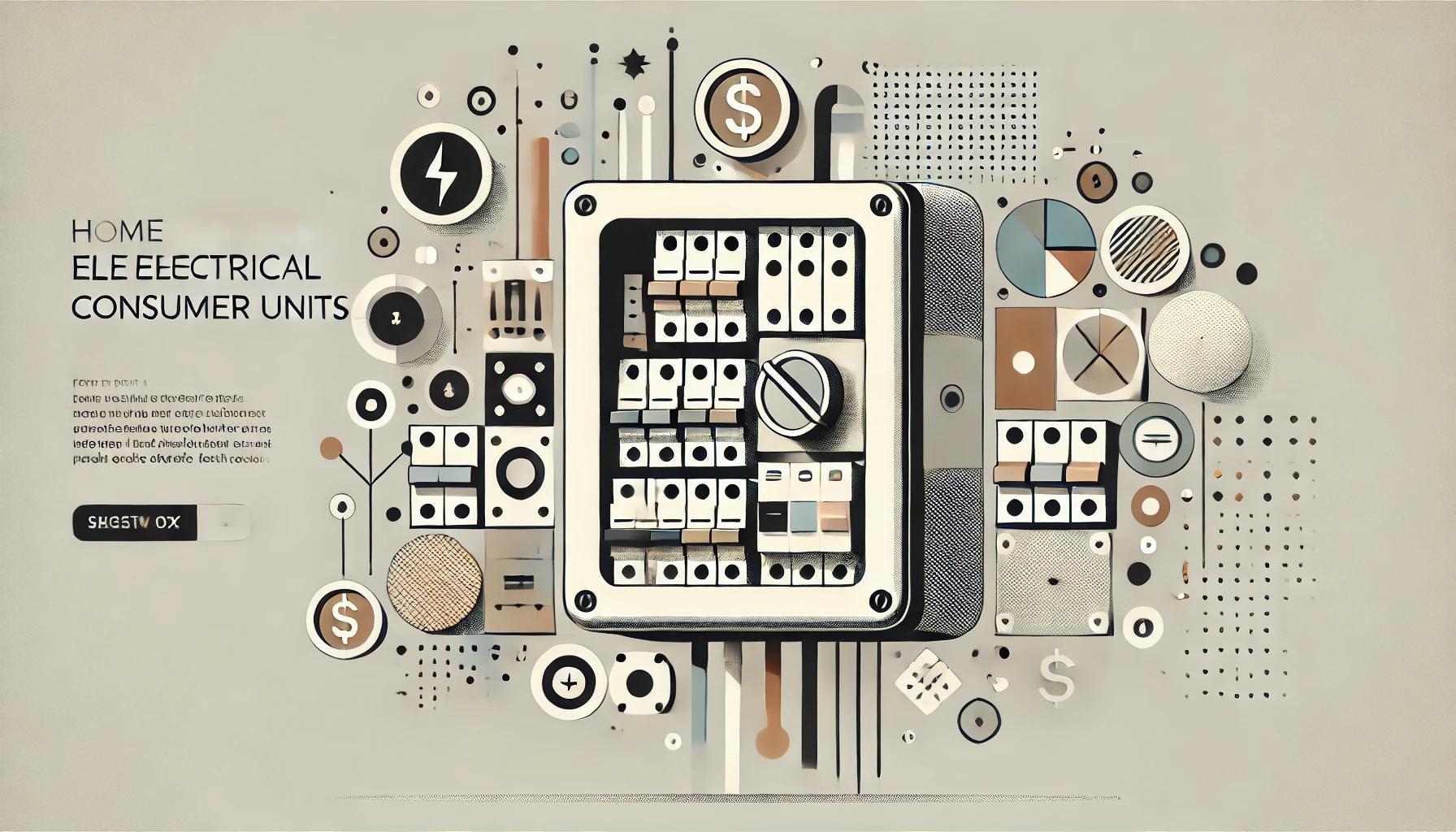Cost of installing a new consumer unit in 2024
Article Updated 4th Oct 2024

Installing a New Consumer Unit: Average Cost £550
Upgrading your home's electrical system with a new consumer unit is a wise investment that ensures safety and compliance with current regulations. In this article, we'll delve into what influences the cost of installation, the steps involved in the job, and options that could affect the final price. By the end, you'll have a clear understanding of what to expect when planning for this essential home improvement.
Factors Influencing the Cost of a New Consumer Unit
The average cost of installing a new consumer unit is around £550. This figure assumes a standard 10-circuit unit replacement in a typical three-bedroom home without any significant complications. However, several factors can influence the final price you pay. The complexity of your existing wiring, the number of circuits required, and any necessary upgrades to meet current safety standards can all impact the cost.
Considering these variables, you might find prices ranging from as low as £400 for a straightforward replacement to as high as £800 for more complex installations that require additional work.
Breaking Down the Installation Process
Installing a new consumer unit involves several critical steps to ensure the job is done safely and efficiently. Understanding this process can help you appreciate where your money goes and how to recognize quality workmanship. Here's a breakdown of the typical steps involved:
- Initial Inspection and Testing (20%): The electrician conducts a thorough inspection of your current electrical system to identify any issues that need addressing before installation.
- Removing the Old Unit (10%): Safely disconnecting and removing the existing consumer unit.
- Installing the New Unit (30%): Mounting the new consumer unit and connecting all circuits correctly.
- Upgrading Circuits and Wiring (20%): Updating any outdated wiring or components to comply with current regulations.
- Final Testing and Certification (20%): Testing the new installation to ensure safety and functionality, followed by providing certification of compliance.
A well-done job will leave you with a neatly installed unit, all circuits appropriately labeled, and official documentation confirming that your electrical system meets current standards.
Options and Extras That May Affect the Price
The size and scope of your installation can significantly influence the overall cost. Here are some options that are often considered:
- Additional Circuits (£30-£50 per circuit): Homes with more appliances or larger spaces may require extra circuits, increasing the unit's size and complexity.
- Surge Protection (£70-£100): Adding surge protection to safeguard your devices from voltage spikes.
- RCBOs Instead of MCBs (£15-£20 extra per circuit): Upgrading to Residual Current Breaker with Overcurrent protection for individual circuits enhances safety but adds to the cost.
- Full Rewiring (Variable): In older homes, outdated wiring may necessitate a complete rewiring, which is a significant additional expense.
Discussing these options with your electrician can help tailor the installation to your specific needs while keeping an eye on the budget.
Material Choices and Evolving Styles
The materials used in your new consumer unit can also affect the total cost. Modern units are typically made from durable, non-combustible metal enclosures, replacing the older plastic versions to comply with the latest safety standards introduced in recent years. This shift not only enhances safety but also slightly increases material costs.
Over the past five years, there has been a trend towards incorporating smart technology into consumer units. Features like energy monitoring and remote control can add convenience but will also impact the price. Additionally, due to inflation and increased material costs, both labor and materials have seen a gradual cost increase of about 10% over the last five years.
Staying informed about these trends can help you make choices that add long-term value to your home.
In conclusion, installing a new consumer unit is a crucial upgrade that enhances the safety and efficiency of your home's electrical system. Understanding the factors that influence cost, such as the complexity of the job and the materials used, can help you make informed decisions. Remember, investing in quality workmanship pays off in the long run. If you're ready to proceed or have more questions, you can post a job to find qualified electricians or ask tradespeople for advice on MyWorkman. They connect you with good local tradespeople across the UK, making the process seamless and stress-free.